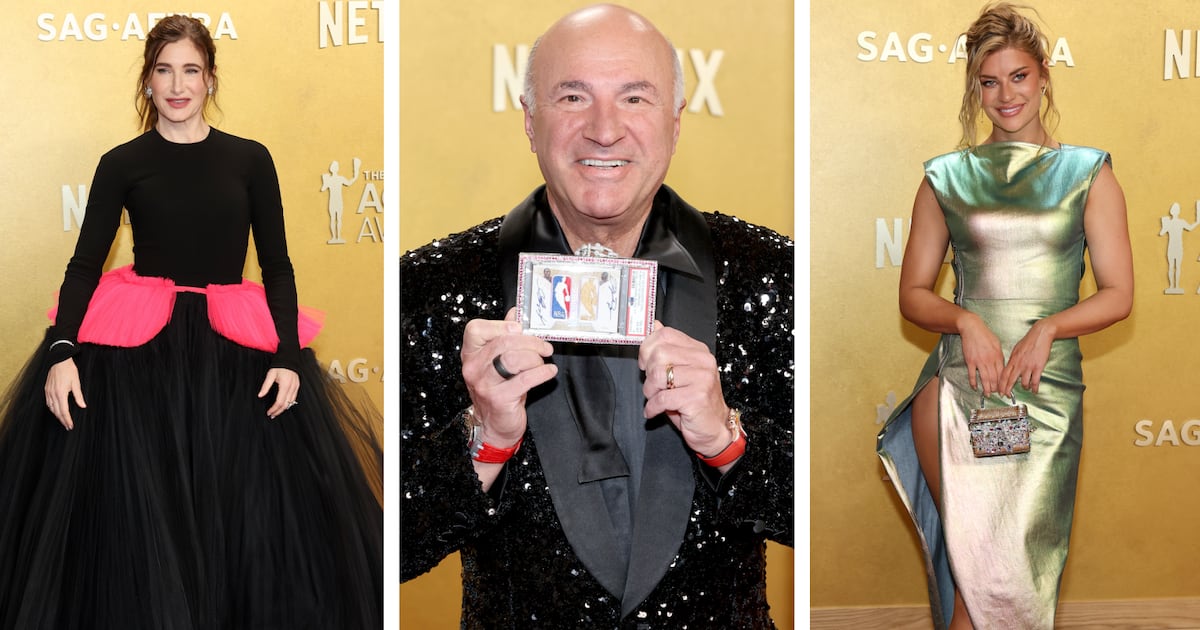PARK CITY, Utah—Buddy comedies hinge on the likability of their bickering protagonist partners and, in that crucial regard, Kidnapping Inc. falls fatally flat. Two soccer-loving Haitian criminals tasked with delivering a kidnapped man to a crime boss, Doc (Jasmuel Andri) and Zoe (Rolapthon Mercure) are an incessantly chatty duo who scream, fume, wail, and race about with slapsticky abandon. Their manic energy is as high as their competence is low, although what they’re truly lacking are amusing or engaging personalities worthy of one’s attention, much less empathy. Their zaniness so fever-pitched that it comes off as strained and desperate. They’re cartoonish in the least flattering sense of the term.
Doc and Zoe are meant to be hilarious caricatures, but Kidnapping Inc.—which premiered Jan. 22 in the Midnight section of this year’s Sundance Film Festival—also views them as victims of a country rife with bloodshed and injustice (it’s one of the world’s kidnapping capitals). In that regard too, director Bruno Mourral’s feature debut comes up short, largely because it never persuasively posits its main characters’ conduct as necessary reactions to their corrupt environs. After casting Doc and Zoe as clownish hoods for the majority of its runtime, the film attempts a last-second about-face, courting genuine sympathy for their plight. Given that they’re merely intolerant knuckleheaded buffoons who’ve willingly chosen their illicit path for profit, though, that late switcheroo proves even more distasteful than the preceding silliness.
In the early morning hours on the outskirts of Port-au-Prince, Doc and Zoe stop to deal with the bound-and-gagged man they have in their car’s trunk, as well as to fix a tire. During this break, Zoe recounts a bad dream in which he was raped by a giant rat—the first, but not last, sign that he’s terrified of being (or being thought of as) gay. It’s not an auspicious introduction, and that’s before he starts beating his captive for biting him. When Doc surveys the damage, he discovers that Zoe has murdered their abducted passenger, thereby putting both of them in great danger considering that their employer has demanded that they drop this man off at 6:30 a.m. so a $300,000 ransom can be collected.
The individual expected to pay that bounty is Benjamin Perralt (Ashley Laraque), a popular senator who’s currently running for president. Benjamin is informed of his son’s abduction by his daughter-in-law Audrey (Anabel Lopez), who’s eager to get her spouse back (at whatever cost) despite the fact that she’s simultaneously sleeping with Eddy (Marcus Boereau), a cocky hood whom she chooses to be the intermediary responsible for paying the kidnappers. The problem is that Audrey can’t scrounge together enough money to close the transaction, and even with Benjamin chipping in and the criminals offering to half the ransom, Eddy is a doofus whom it’s clear, from his first scene, can’t be trusted to do anything right.

Samuel Andri and Rolaphton Mercure.
Sundance InstituteThat goes for just about everyone in Kidnapping Inc., which operates on a frenzied Looney Tunes wavelength and yet can’t devise a legitimately funny scenario. Panicked about their dead cargo, Doc and Zoe opt to crash their car to make it look like he perished in an accident. As they do this, they discover that their abductee is alive and on the run, instigating a chase through Port-au-Prince’s slums that allows director Mourral to provide a vivid snapshot of life inside this impoverished and crowded area. Doc and Zoe’s pursuit is complicated by naked bathing women, amateur barbers, angry parents, and fleeing children, and while nothing particularly outrageous occurs along their route, this interlude conveys a potent impression of this milieu: its cramped corridors; its crumbling edifices; and its loud and colorful denizens.
Courtesy of more hyperactive shenanigans, Doc and Zoe actually kill their charge, and devise a new plan to cope with their situation: snatching Patrick (Patrick Joseph), a random nobody who looks just like their victim. In doing so, they wind up with not only Patrick but his pregnant wife Laura (Gessica Geneus), who’s anxious about making a flight to the U.S. to have her baby in a proper hospital, and who spends most of her time sitting in a car with this trio yelling at her husband for being a wimp, a lout, and all sorts of other things that turn the proceedings outright hysterical.
Mourral, Jasmuel Andri, and Gilbert Mirambeau Jr.’s screenplay is extremely fond of multiple characters yelling at each other at once. It’s also eventually interested in exposing the seedy underbelly of the country’s political system, since the big boss behind the kidnapping is police captain Fritz (Manfred Marcelin), who has ties to Senator Perralt—a web of betrayal and deceit that’s directly linked to the upcoming elections, which are threatened by kidnapping-related riots.
Kidnapping Inc. is additionally fueled by the nation’s racial tensions between its 95 percent black and 5 percent mixed (i.e., “mulatto”) populations, yet the frantic action can’t adequately shoulder such weighty concerns, what with it indulging in two separate instances of people defecating on-camera. Add in some vomit, a health amount of gunfire, a steady stream of look-at-me slow-motion, and a wannabe-wacky sequence in which Laura gives birth in an SUV, with Doc as the impromptu attending physician and locals hooting and hollering in attendance (including a little person who’s recording the incident on his phone), and the result is a whiplash caper that feels like it’s been transported to the present from the late-’90s.
Subplots are underwritten or ditched, an assassin is introduced and then promptly discarded, and a cute puppy is killed for laughs (and then shown, mutilated, for squeals) throughout the course of Kidnapping Inc. For all its commotion, however, the film doesn’t drum up the madcap mania it seeks. Worse, in its inapt closing moments, it strives to pull at the heartstrings over both the endemic vice and violence plaguing Haiti and the many disparate souls caught in the crossfire—a goal that’s at odds with its prevailing over-the-top atmosphere, and which it wholly fails to achieve. Doc and Zoe are barely tolerable as outlandish comic creations; asking us to feel deeply about the harrowing circumstances in which they voluntarily put themselves is one misstep too far.






